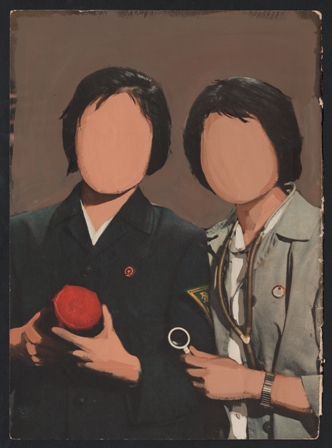 GIDEON RUBIN
GIDEON RUBIN
Once Removed
17 May – 5 July 2017
Images
Biography
Gideon Rubin asks what it means to be a contemporary painter by
using anonymous photographs, often from the turn of the century.
He then selects characters and scenes which he conveys onto
canvas or linen. Through the use of broad brushstrokes and a
muted palette, the figures and landscapes are often abstracted,
details are effaced and scenes move in and out of the picture
plane. The surfaces of the paintings reveal strata of previous
paintings or are scraped back to reveal the canvas beneath. In
other instances, Rubin leaves entire areas of canvas untouched
so that they become integral parts of the work whilst drawing
attention to the paintings support. Embedded within layers of
paint or receding from view, it is as if his selected characters
are entrenched in multiple histories or are unrecoverable in the
here and now. And as such, the artist asks what it means to
paint and to transplant people and objects into his selected
medium. In bringing paintings representational possibilities and
its self-reflective qualities within reach of each other, Gideon
Rubin asks the viewer to consider the act of painting and its
legacy.
“Though firmly ensconced in the 21st century, Gideon Rubin is
unquestionably a painter of history. His is a complex and
multivalent history, one that draws in equal measure on the past
and the present, the known and the unknowable, the personal and
the universal. It is shaped by chance, by place, by family, by
beauty, by the masters who came before; formed by his childhood
in Israel, global travels, studies at the School of Visual Arts
in New York and the Slade School in London, the galleries of the
Metropolitan Museum of Art and the Prado, and the pages of the
Daily Mail and Hello! magazine.”
Painting History by Sarah Suzuki